Before I begin, I just want to say that a good example to show how I am as a person is the fact I was about to write this text, but then, COMPLETELY OUT OF FREAKIN' NOWHERE, this thought of "Man, I wonder what happens in Super Mario Bros. 3, if I get a fireflower from the question block as Super Mario, get hit by an enemy, turn into Small Mario, then pick up the fireflower. I simply MUST know, now!"
So, yeah, that's what I did, and there was nothing productive I could have possibly been able to achieve before finding that out. I struggle with this daily.
Anyways!
Pro wrestling? Why on earth?
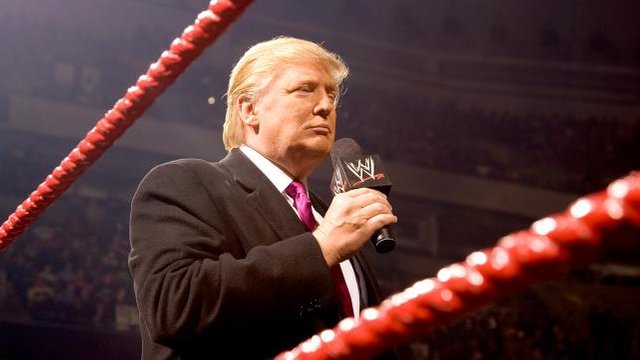
A problem I often have with the libertarian movement on the internet is "How many times can we say the same things over and over and over again?"
Taxation is theft, regulation kills jobs, government creates poverty, death and, in the most extreme circumstances, products like Lada.
So, I in order for the me to write about all this stuff, I want to find new angles to tackle it from. I'm also seeing a lot of people on Steemit saying that fresh points of views are appreciated and valued. So, I thought about giving you guys something that I've never really seen before during the decade or so that I've been an active writer/reader on the political corners of the internet.
Now, when you think of what to use when trying to convey complex economic theories and topics to a person, or a group of people, pro wrestling is probably not among the top 3 or 5 subjects that you would consider using to accomplish said goal.
However, believe it or not, pro wrestling, particularly the pro wrestling business in North America in the 90s offers us a somewhat unique opportunity to examine the behaviour of certain economic actors in the market, in varied conditions. This is something that I've come up with years and years ago, but I've never actually sat down and written it down.
So, I decided to do that now!
I can see you still being extremely skeptical. And it's understandable: this is a forum of intelligent men and women, discussing deep philosophies of life and liberty, as well as the occasional discussion about pot, so what on earth could something with sweaty, grown men in tights having pretend fights in a ring have to do with.. anything, really? Well, allow me to explain.
In the 1990s, and a little bit of the early 2000s, there were two big pro wrestling companies in America: WWF and WCW. Now, the thing about pro wrestling fans is that we are some of the most autistic bunch of people you will ever meet, outside of libertarian conventions and Pokémon Speedrun communities, and we just love our details, numbers and facts and all that good stuff. So, what this has resulted in is an entire market of interviews, books, radio shows, you name it, about the war between these two organizations. If I chose to, I could make a detailed article about McDonald's vs. Burger King, but there's no way I could ever garner as much detailed information about the inner going-ons of the two companies. So, we'll stick to wrestling, ayght?
Pretty much after my initial fandom as a young kid, while I've been a fan of wrestling, for whatever reason, I've found the business side of it to be the most interesting. What were the guys making, what were the companies making, what kind of ratings were the shows and segments drawing, what were the mechanisms behind making money in the business.. stuff like that. So, needless to say, in over 15 years or so, I've sucked in a lot of this stuff.
What I'd like to talk about in depth is the battle between the two organizations, WWF and WCW, how differently they were structured from one another, how the employees acted differently in the two, differently structured organizations, how it all ties into economic theory, and who ultimately won the battle, and why.
A little bit of background (But not too much, I don't want to bore you with too much wrestling stuff, don't worry.)
By the mid-to-late 1980s, Vince McMahon's World Wrestling Federation, WWF, has established itself as the industry leader in pro wrestling, with its top star Hulk Hogan and the massively succesful Hulkamania marketing campaign that came along with his championship reign on top. The WWF was Vince McMahon's privately owned business, and Vince's own money was used to run the machine. World Championship Wrestling, WCW, formerly Jim Crockett Promotions until late 1988, when Ted Turner, the head honcho of the Turner Broadcasting System, TBS, bought the promotion to save it from bankruptcy, however, was different.
While Vince McMahon did, and still, to this day in 2016 still does keep a very close eye to every detail that goes into the operations of his company, Ted Turner was hands off when it came to the day to day operations of WCW, eventhough TBS's money was used to run the business.
A revolving door of presidents, executives, creative leaders and all sorts of different titles happened for about four-five years in WCW, during which WCW was unable to turn a profit, and was a massive money-losing venture.
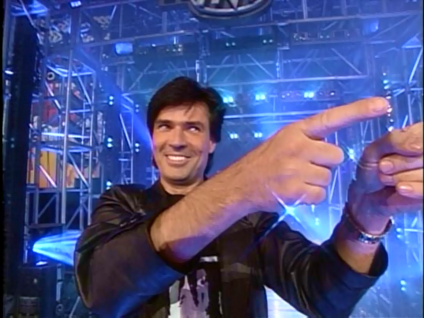
Enter Erich Bischoff.
An entrepreneuer with several solid and succesful business ventures behind him at an early age, who got a job in WCW as something of a replacement announcer after a combination of amazing accidents, which I won't get to here. To make a long story short, in 1993, Eric Bischoff was hired as the Executive Producer, and in 1994, he was promoted to Executive Vice President of WCW. Ultimately becoming the first leader in WCW able to actually turn a profit.
While Bischoff was acting as the Executive Vice President of WCW, the money he was using was still Ted Turner's. Turner's TBS was highly succesful at the time, and Ted himself probably wasn't even aware of how much money he owned at any particular time. Turner was also just a huge fan of wrestling, and WCW was never really about turning a profit, per se, but it was about Ted's love for pro wrestling, and he simply wanted pro wrestling to be featured on his broadcasting business. So, even when it was money losing effort, Turner always used his power in shareholders' meetings and whatnot to opt to keep WCW around.
This creates an interesting scenario where Eric Bischoff was, for all intents and purposes, in charge of WCW, with Ted Turner's money. Bischoff was able to make WCW stop losing money - Bischoff was an extremely smart businessman - and this enabled Bischoff to gain Ted's trust, and get access to his wallet, to pay for whatever he saw fit.
WWF, like I said, was operating with the owner Vince McMahon's own money. By the early-to-mid 1990s, the WWF was struggling due to departues of several big name stars, a steroid scandal that Vince was fighting against the US government, a somewhat lost creative direction in the company, a lot of things. So, money was tight. Traditionally in wrestling, you always got paid per date. So, if you worked, you got paid. There was never a true guarantee that you were working a set amount of dates per year, month or week - you could be working one day, and not working for a month after that. And since wrestlers pay for their own insurances, travel, healthcare, and pretty much everything, it can be tough to live the life of a pro wrestler.
Fastforward to 1996, and WCW, under Eric Bischoff, had been able to sign a number of WWF's big stars, by offering them guaranteed money for the first time in the history of the business. Meaning that if you would sign a three year deal for a million dollars, that one million dollars was yours, regardless of how many dates you worked, regardless of whether you got injured, and so on and so forth. The WWF simply could not afford this. Eric Bischoff, on the other hand, had the seemingly infinte resources of Ted Turner at his disposal and could afford virtually anything. WCW launched a prime time Monday wrestling show called Nitro to go head to head with the WWF's show RAW, and was crushing them in the ratings throughout 96 and 97, basically using their own stars who they were able to lure in by offering these big money guranteed deals. The WWF was extremely close to filing for bankruptcy in 1997 because they were losing so much money. The war was real.
So, what happened? How did WCW go from being on top of the industry with all the biggest stars from 95 to 98/99, turning in monstrous profits, to losing 80 million dollars in 2000, and going out of business in March 2001?
Now, this is where it starts to become interesting for economics geeks.
The dichotomy between WWF and WCW is quite interesting when you really study them. WWF was Vince McMahon's privately owned business, and as stated before, had Vince's own money on the line, whereas Eric Bischoff had the opportunity to run WCW basically with all of the resources, but none of the risks.
If Vince failed, his company would go down under, while Bischoff's failure could, at worst, lead to him just losing his job. It goes without saying that Vince had a lot more on the line. That said, however, Bischoff really wanted to win. But what really does happen when huge ambitions meet no financial risks?
You knooooooow.. kinda like a government.
Still with me? Cool.
While the WWF was in serious struggling phase with its finances, WCW was spending money like there was no tomorrow, luring in big names from the WWF and paying them absolutely outrageous amounts of money for very little work. WCW was taking financial risks that no one should ever be doing, but Bischoff was able to make them because his bank account wasn't on the line, and Ted Turner had such a love affair with pro wrestling that he wanted WCW to remain being a thing, at all costs. And Bischoff had done enough to gain Turner's trust.
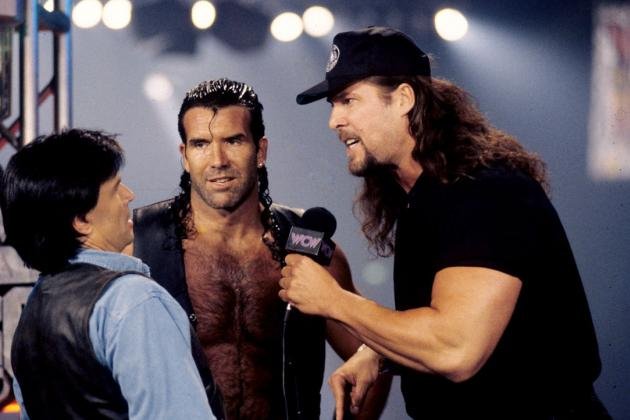
To drop a few examples of WCW's financial decisions, two big ex-WWE signees, Kevin Nash and Scott Hall, while already having signed seven figure deals with WCW initially, actually had a clause in their contracts that stated that no one joining WCW should be allowed to make more money than them, meaning that whenever someone was signed to a bigger deal than Nash and Hall were having, Nash and Hall's pays went up a certain %, so that it would equal anyone making more money than them. This leads to a funny story where WCW was signing Bret Hart, a huge franchise player in the WWF, in late 97, to a big deal, but before Bischoff finalized the contract, Kevin Nash got in Bishcoff's ear and said that he should definitely pay Bret Hart substantially more money than he's offering, since he is so valuable. This, of course, bumped Nash's pay up by a huge amount. And Nash did this on purpose.
Also, and this is the God's honest truth, WCW was paying a six figure annual salary to a wrestler for several years, who never workd a single date in WCW. Why, you ask? Because they forgot he worked there.
And with the guaranteed deal, he had absolutely no incentive to pick up a phone and call them, asking what was up. I mean, he was quite happy sitting at home, probably drinking beer, collecting his sweet pay.
Oh, WCW, you so crazy.
It's been a topic forever that why were so many wrestlers "lazy" in WCW. A lot of wrestlers worked hard in the WWF, put in effort, produced great matches and entertaining television, jumped to WCW and basically started to put in the absolute minimum effort imagineable into everything they did. People have offered a lot of different theories as to why this occured, but I've always felt that the answer is obvious, and should be obvious to anyone clued into the economic theory and having read what I've stated earlier about how company functioned.
In the WWF, wrestlers were paid based on the "gate" of the show, and their position on the "card". In English, this means that the money made by the show was divided between the workers based on how important their matches were to overall success of the show. This gave the wrestlers a clear incentive to keep pushing and working hard, "getting over", as they say (which is wrestling lingo for getting the people to care about you, which results in getting booked in more important matches, thus making more money).
No such incentives in WCW, since the money was guaranteed.
I've cracked a joke before that if Karl Marx had been alive in mid-late 90s, he would have been the biggest WCW fan there was, since WCW, in a lot of ways, represented the socialist utopia:
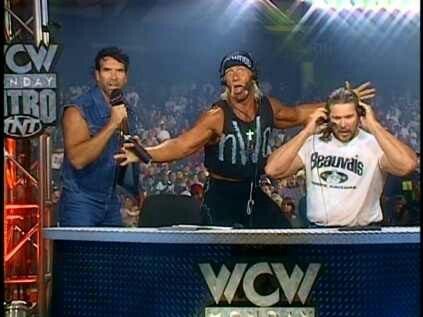
The wrestlers were in charge a lot of the time, they were the big stars telling the management when they wanted to come to work, and they were telling the management when to go to hell. The inmates were running the asylum and the workers were basically calling the shots. Seriously, who would have thought that a Marxist economics social experiment like this would take place in the wrestling business of all places? Well, it did. And I betcha most of you did not know about it.
The interesting thing to note, too, is the fact that I alluded to earlier: Bischoff, the man in charge of WCW at the time, was no dummy. He had already had entrepreneurial success in more than one project, he actually managed to run a succesful landscaping company in his very early 20s, despite not even really having a passion for landscaping, it was just something he saw as an opportunity to make money, and so he did. So, Bischoff was a smart guy a very good busisnessman. And prior to getting access to Ted Turner's infinite resources with the open wallet policy, Bischoff was the first man in the history of WCW to actually cut losses.
But as we know, according to economic theory, when you have no personal risk involved, there likelyhood of you making stupid, irrational decisions and mistakes is a lot higher.
This is where Eric Bischoff basically went from a businessman to a politician: he did enough to gain the trust of Ted Turner, which in turn gained him the access to his wallet, allowing him to do whatever he wanted with someone else's money, without risking his own finances. This lead to many boneheaded decisions followed by boneheaded decisions made in WCW.
Huge, marquee matches were given away on free television with no build up, eventhough the whole point in pro wrestling is to use your television shows to promote your pay-per-view events, where you hold the big matches that people want to pay to see. One of most notable examples of this was Hulk Hogan and Goldberg in a match for the heavyweight title, which drew over 40,000 people to the Georgia Dome in Atlanta with a three day notice. That's absolutely insane and unheard of, for those of you not into pro wrestling. And who can blame you, it's men in tights having fake fights, I have no idea why I'm into it. Maybe it's a childhood trauma or something, I don't know.
But again, this just goes to show that the lack of personal risk involved lessened the incentive to really make any long term strategies, which allowed for stuff like that to happen. Instead of building up the events that you have to pay to see, you give away a huge match on TV to pop a TV rating, which gives you the instant gratification of popping a huge TV rating, eventhough you could achieve more long term gratification by popping good PPV buyrate. But hey, that's boring and takes time. Screw that.
Add in the fact that you had the employees on guaranteed pay basically calling their own shots, and you have a complete mess of a company.
And don't be fooled: they made millions instead of thousands, but the wrestlers were still human, they were still like you and me: you give them the opportunity to call their own shots, and they will call their own shots. They will put themselves first, obviously. It's just not going to happen that they put the company first, simply for the goodness of their hearts. An individual looks after himself, first. And the failure to see this was a huge factor in the downfall of WCW.
What I find interesting about this whole period is just seeing how differently the two companies acted. Completely contrary to WCW, the WWF followed a more traditional business model: you work hard, you make money, one man is in charge and everything goes through him. This is what a lot of anti-market people are overly critical of. They say that hierarchies create oppression, and that the workers should be in charge, calling their own shots, money should be guaranteed, regardless of how hard you work for it..
However, in March 2001, the fairytale ended and WCW closed its doors, going from (off the top of my head) $70-80 million profit a year company in 1997, to losing $80 million in 2000, to getting purchased by the WWF for $2-5 million.
What's also interesting is that wrestlers, who jumped ship from the WWF to WCW in the mid 90s went back to the WWF in the early 2000s and worked harder than they ever had in WCW - because of the different pay structures.
But there was even a more recent example just a while back about a CEO who decided to be "fair" and pay his employees the same amount of money for their work. The result was a complete disaster, because people who worked hard felt robbed when people, who worked less, made the same amount of money.
And I mean hell, we don't need to focus on a few wrestling companies and some CEO, look at the list of entire countries that have adopted the socialist ideology. Is there a single positive end result to that in recorded human history? A quick glimpse will show poverty, death, destruction and unhappiness whenever actual socialism and Marxist theories have been tried.
If you made it through, I thank you for reading and I hope I was able to make this entertaining even if the subject doesn't interest you that much.
Before I go, I want to make it known that if you pick up the fireflower as Small Mario on SMB3, you simply become Super Mario, so the fireflower acts like a mushroom, that's all.
For each person who earns without working, someone is working without earning. I think this simple phrase sums up and destroys what is socialism
Downvoting a post can decrease pending rewards and make it less visible. Common reasons:
Submit
Best thing I've read in awhile! I love the thoroughness of your approach and commentary.
Downvoting a post can decrease pending rewards and make it less visible. Common reasons:
Submit
Super glad you enjoyed it. :) I'm happy it added value to your day.
Downvoting a post can decrease pending rewards and make it less visible. Common reasons:
Submit
Oh man, that was wonderfully insightful. Thank you for letting me know what happens when you pick up the fire flower as small Mario. Many nights I laid awake, wondering what would happen.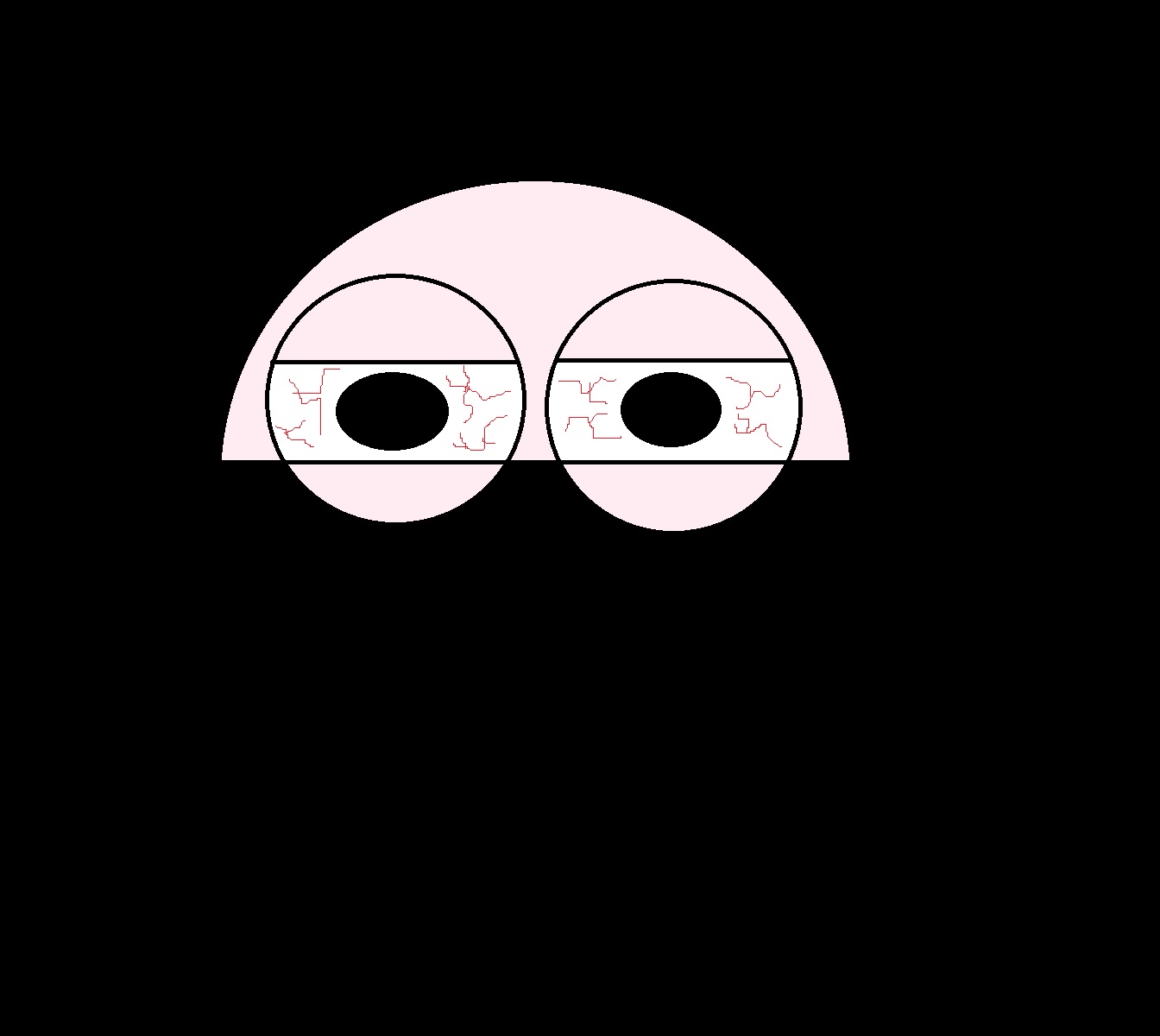
Downvoting a post can decrease pending rewards and make it less visible. Common reasons:
Submit